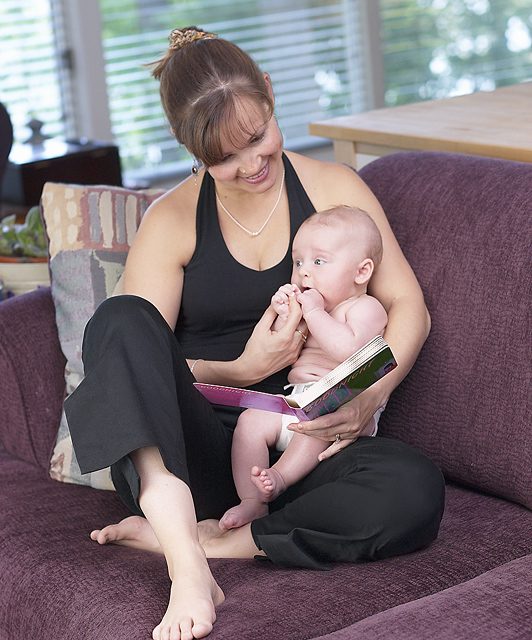Books can be powerful interactive tools to help promote language and literacy development in infants and toddlers. Although we wouldn’t expect small children to truly “read” (that is, decode) text until they are in their kindergarten years, there are milestones for early literacy that children attain in order to prepare them for the “learning to read” stage of development. Literacy milestones are discussed in another article (please click here to review reading milestones).
No age is too young to read to children. Infants can be read to, as well, although for many reasons they will be more attuned to the sounds of voices (especially mom’s) than the book itself. And that’s OK, because this act can help to establish familiarity with books as media containing interesting messages. And, it is really the interaction itself that children benefit from in the early stages of development.


Pause after you’ve read a sentence. Wait and see what your child does. If your child interrupts your rendition, pause to listen and see what he or she is doing. Is she cooing? Is he staring at a picture? Is she pointing to a picture? Is he repeating words as if reading? Whatever your child is into, follow his or her lead…don’t worry about the words themselves. Make up a side story involving the picture he’s interested in or talk about things in the room that relate to the picture or story. Talk about colours, shapes, sizes, anything that can sustain your child’s interest. Be creative!
It’s important to remember that small children are far more likely to remain engaged with something that interests them. And, let’s face it, our agendas don’t always sync with our children’s! So, if your child isn’t all that interested in the story you are reading, there are a lot of things to talk about in a children’s book besides the written words themselves.
For more developmental milestones, including those for attention, head to the main page to view the interactive slide ruler.

